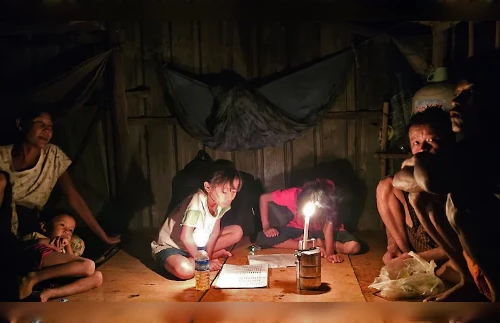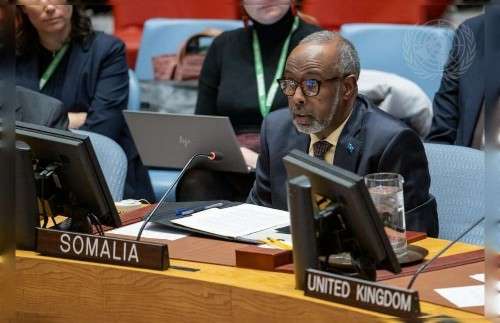Iman Muttaqin Yusof/Kuala Lumpur

Malaysia’s parliament on Monday voted to scrap the mandatory death penalty and reduced the number of offenses punishable by hanging, saying capital punishment as a deterrent had not lowered crime.
Parliament also voted to end life sentences, reducing them to 30 to 40 years in prison.
The proposed bills were debated by lawmakers from both the government and opposition, before being passed unanimously through a voice vote.
“No research proves the death penalty as the most effective crime prevention, as its effectiveness can’t be guaranteed due to various factors influencing prosecutions and crime rates,” Deputy Law Minister Ramkarpal Singh told parliament.
The bills must be approved by the senate and presented to the king for a royal assent, both usually just a formality.
Currently, 11 offenses carry the mandatory death penalty and a total of 1,318 death row inmates were awaiting execution as of last month, according to Malaysia’s Prison Department.
Malaysia imposed a stay on executions in 2018, which continues, when the then-Pakatan Harapan government said it would begin efforts to end the death penalty.
More than 70% of the world’s countries have abolished capital punishment in law or practice, according to the Death Penalty Information Center. However, capital punishment continues to exist in many parts of the world, especially in countries with large populations and those with authoritarian rule.
Katrina Jorene Maliamauv, executive director of Amnesty International Malaysia, said the country had taken an important step to end the mandatory death penalty, but it must not be the last one, as the nation must end capital punishment altogether.
“Today’s vote has been a long-time in the making, and while there is still more to be done, it lays the foundations for further reform that must put human rights and fair trial proceedings front and center,” she said in a statement.
“Once these changes are enshrined in law, those applying for resentencing must be provided adequate time, resources and access to legal representation, as well the right to appeal any decision.”
She said the moratorium on executions must be maintained until the death penalty is fully abolished and all death sentences are commuted.
Dobby Chew, executive coordinator of the Anti-Death Penalty Asia Network, said Malaysia had taken a big first step forward toward addressing the injustice inherent in the mandatory death penalty.
“I’m really glad that it has passed. Hopefully, in the days to come, those on death row would have a fair opportunity to be heard in full by the court and mitigation factors considered,” he told BenarNews.
“But it is not only important for justice to be done for them but also for Malaysian to see what the death penalty inflicts on people and decide for themselves whether the death penalty achieves justice.”
‘Murderers will feel safe’
Meanwhile, as the Lower House debated ending the mandatory death penalty, Tan Siew Ling, 60, held a press conference at parliament’s premises where she showed a photograph of her daughter who was raped and murdered in 2009.
Ling pleaded with lawmakers to reconsider their decision as she tearfully recounted the horrific details of the death of her daughter, Annie Kok Yin Cheng.
“My daughter was killed in 2009 when she was 17. She was raped and murdered. Her throat was slit and she died,” she said in a press conference before bursting into tears and was unable to continue.
Also present at the press conference was Noor Hakimi Abd Halim, a friend of another murder victim.
“If this mandatory death penalty is abolished, murderers will feel safe and no longer be afraid to kill. That is why we urge not to abolish this [mandatory] death penalty,” Noor said.
Christina Teng, a lawyer and spokeswoman for the group “Protect Malaysia,” which supports the mandatory death penalty, said a long prison sentence for terrible crimes was inadequate.
“Heinous criminals who committed premeditated acts such as rape and murder or robbery and murder would be released after serving only 30 to 40 years in prison, which is an insufficient punishment for such serious offenses,” she told the press conference.
Richard Morais, whose brother’s remains were discovered in a barrel filled with concrete nine years ago, said he was unhappy at the end of the mandatory death penalty.
“How are you going to forgive all the killers given what I have been through?” he told BenarNews when contacted via phone.
“They [the government] never contacted us and never included us in the conversation before amending the bills. No compensation at all. Not a single cent was given by the government for [my brother] Kevin’s funeral. They lack common sense in this matter and what they have done is unjust.”
Meanwhile, Ramkarpal, the deputy law minister, said the government would continue to engage with victims’ families.
“We express our sympathy and will try to persuade them that the death penalty is not effective. Our approach is to look at the bigger picture and prevent more heinous crimes,” he said at a press conference Monday evening.
“The death penalty is not the solution to reduce such cases.”
Copyright ©2015-2022, BenarNews. Used with the permission of BenarNews.https://www.benarnews.org














